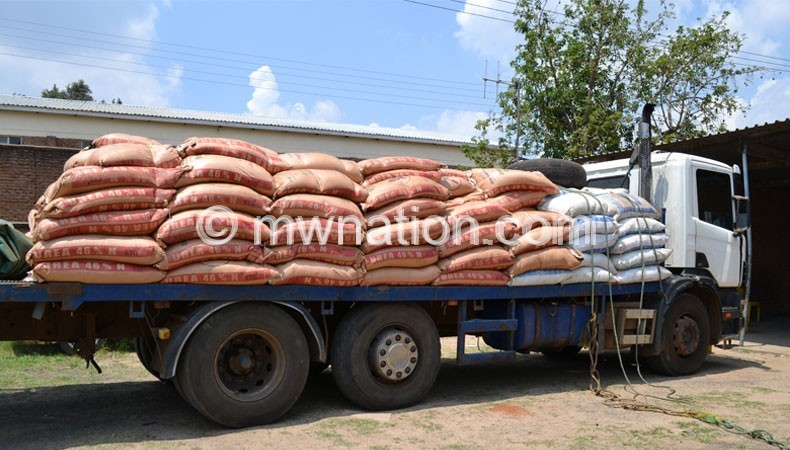Uncertainty grips fertiliser market
A slowdown of fertiliser production and supply uncertainties due to global measures effected to contain the novel coronavirus (Covid-19) could push up prices of the commodity, industry players have said.
Fertiliser Association of Malawi chairperson Dimitri Giannakis said while supply has not yet been disrupted, planning ahead to counter possible disruptions would be crucial.

He said: “Presently, companies in Malawi are trying to bring fertiliser early and we are encouraging our players to purchase fertilisers before the situation gets worse.”
“We also encourage those that can, to purchase the commodity early and government to continue with Farm Input Subsidy Programme [Fisp] because through Fisp government assists farmers who cannot afford fertiliser.”
AHL Group public relations manager Tereza Ndanga, the parent company of Agriculture Trading Company (ATC), said that logistical delays are anticipated because shipping lines are unsure of movements due to the imposed lockdowns and ports are not operating at full capacity.
She said: “Prices of bulk fertiliser on the global market are seemingly going up because of the slowdown in production and this will be passed on to us as importers, which would also force us to raise prices of the commodity.
“On the other hand, many potential customers, especially those in non-governmental organisations have shifted their focus to the health sector because that is an area of immediate need and this will likely affect our revenue figures for this year.”
In Malawi, where 80 percent of the population depends on agro-activities, the country has over the years provided farm inputs mostly fertiliser and hybrid maize seed at a subsidised rate to vulnerable families to improve Malawi’s food security.
Every year, government allocates money to the Fisp to ensure adequate food for less-privileged households. In the 2019/20 fiscal plan, for instance, Treasury allocated K35.5 billion for the programme.
Ministry of Agriculture and Food Security spokesperson Priscilla Mateyu, in an interview with Business News last week said government is closely monitoring production and distribution of fertilisers to ensure that supply is not disrupted.
She said: “Government is putting in all efforts to make sure that suppliers are identified and given ample time to import fertilisers and other inputs into the country in readiness for the 2020/2021 growing season.
“Government will also look into that aspect of prices and number of beneficiaries in the Fisp programme and advise accordingly after thorough consultations.”
In China, the most significant producer for phosphates, sulphur and sulphuric acid has not been spared as production has greatly been lowered.




